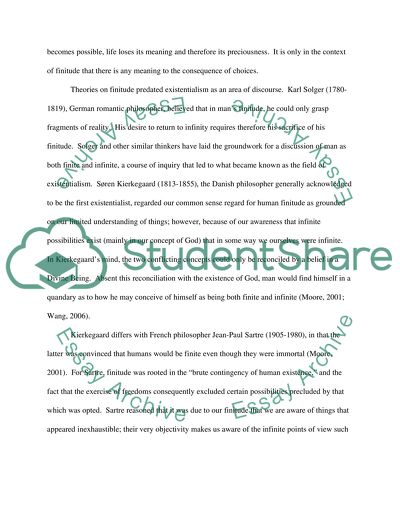Retrieved from https://studentshare.org/environmental-studies/1406834-existentialism-and-finitude-why-existentialists-prefer-to-speak-of-finitude-rather-than-death
https://studentshare.org/environmental-studies/1406834-existentialism-and-finitude-why-existentialists-prefer-to-speak-of-finitude-rather-than-death.


